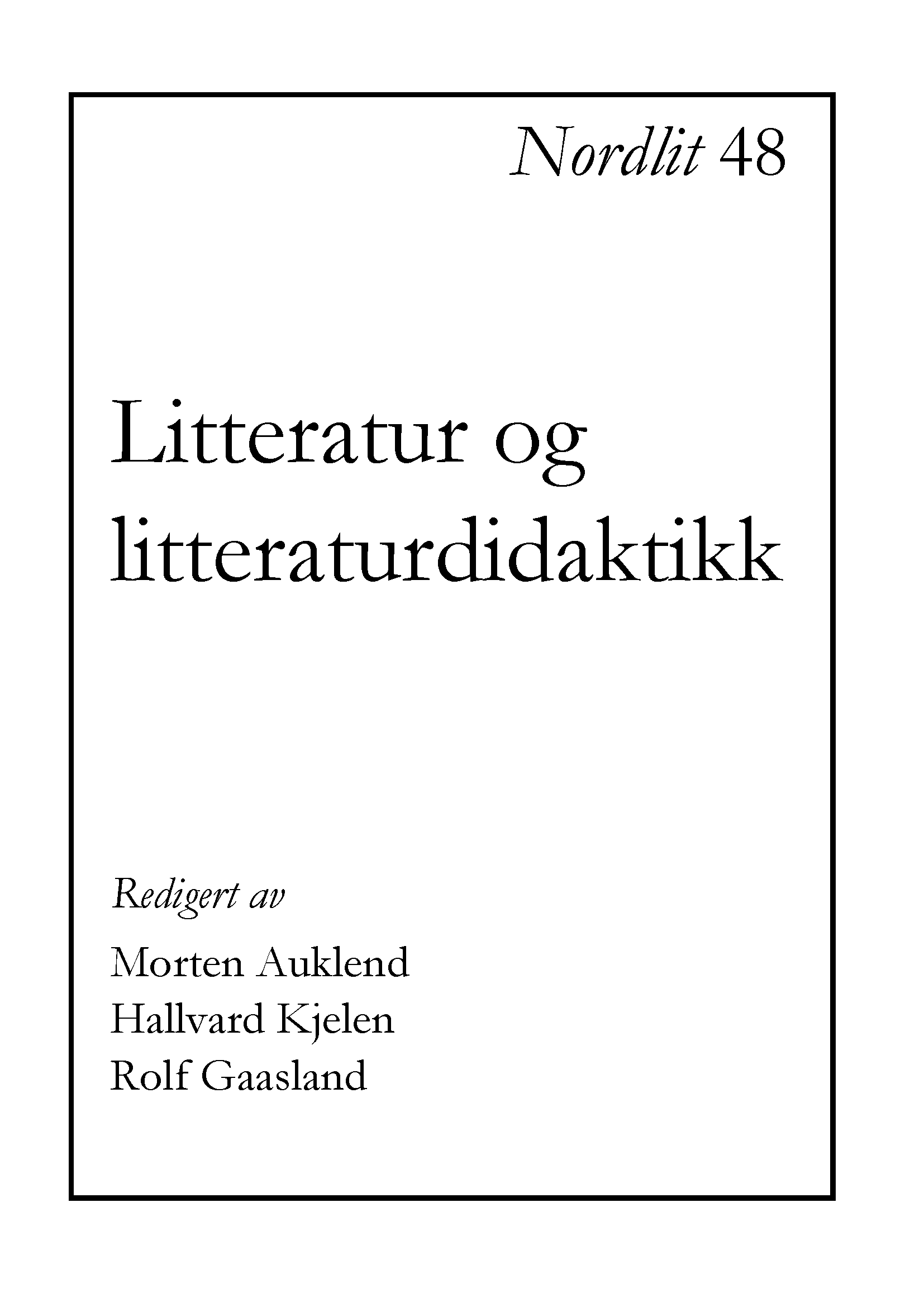Uafgørlighedsdidaktik i litteraturundervisningen
DOI:
https://doi.org/10.7557/13.6330Keywords:
undecidability, teaching literature, didactic, frictionality, DerridaAbstract
Building on two situations from practice, the potential of undecidability - when it appears in schools’ literature teaching - is analyzed and discussed. This is done with a focus on undecidability in the field between the text, the students and the teacher. For this purpose, we set up a didactic model in three stages, which are: The ontology of undecidability; the typology of undecidability; and the mode of undecidability. In other words, what is undecidability? How can it be measured? And how does it play out? The purpose is to approach an actual didactic model of undecidability, where the point is that if the potential of undecidability is to be redeemed, all classroom actants must be on board; the text must contain undecidability, the teacher must dare to use it, and students should be receptive to it.
References
Blau, S.D. (2003). The Literature Workshop. Portsmouth: Heinemann.
Brooks, P. (1992). Reading for the Plot. Cambridge, MA: Harvard University Press.
Daugaard, L.M. & Johansen, M.B. (2012). «Tosprogede børns møde med metafiktion i en postmoderne billedbog». BLFT – Nordic Journal Of ChildLit Aesthetics, 3(1): 1-14. DOI: https://doi.org/10.3402/blft.v3i0.18078
Deleuze, G. & Guattari, F. (2005). Tusind plateauer. København: Det Kongelige Danske Kunstakademis Billedkunstskoler.
Derrida, J. (1992). Deconstruction and the Possibility of Justice. New York: Routledge.
Derrida, J. (1995). The Gift of Death. Chicago: University of Chicago Press.
Derrida, J. (1997). Of Grammatology. Baltimore: The Johns Hopkins University Press.
Derrida, J. (1998). Limited Inc. Evanston: Northwestern University Press.
Derrida, J. (2000). «Demeure – Fiction and Testimony». I: E. Rottenberg (red.), The Instant of My Death (s. 15-51). Stanford: Stanford University Press.
Enquist, P.O. (2014). Kapten Nemos bibliotek. Stockholm: Norstedts Förlag.
Hargreaves, A. (2000). Nye lærere, nye tider. Aarhus: Klim.
Hiim, H. & Hippe, E. (2003). Undervisningsplanlægning for faglærere. København: Gyldendals Lærerbibliotek.
Jameson, F. (1985). «Post-modernismen og den sene kapitalismes kulturelle logik». Kultur & Klasse, 51(3): 82-104. https://doi.org/10.7146/kok.v13i51.21550
Johansen, M.B. (2015). «Jeg har forstået den sådan, at den ikke skal forstås» – når 6.A. læser Franz Kafka. Acta Didactica, 9(1): 1-20. DOI: http://dx.doi.org/10.5617/adno.1391
Johansen, M.B. (2017). «Ny viden begynder med forhindringer». Kognition & Pædagogik, 27(106): 8-19.
Johansen, M.B. (2019). Litteratur og dannelse – at lade sig berige af noget andet end sig selv. Kø-benhavn: Akademisk.
Kant, I. (1926). Kritik der Reinen Vernunft. Leipzig: Verlag von Felix Meiner.
Land, R. (2015). «Facilitating the academy through threshold concepts and troublesome knowledge». In E. Westergaard & J. S. Wiewiura (Eds.), On the Facilitation of the Academy (pp. 17-29). Rotterdam: Sense Publishers. https://doi.org/10.1007/978-94-6209-974-6_2
Lucy, N. (2004). A Derrida Dictionary. Oxford: Blackwell. https://doi.org/10.1002/9780470775752
Madsen, U.A. (2018). Baudrillard og pædagogik. København: Hans Reitzels Forlag.
Nuthall, G. (2002). «The Cultural Myths and the Realities of Teaching and Learning». New Zea-land Annual Review of Education, 11: 5-30. https://doi.org/10.26686/nzaroe.v0i11.1414
Sønsthagen, K. (2007). Billedromaner i brug. København: Dansklærerforeningens Forlag.
Downloads
Published
How to Cite
Issue
Section
License
Copyright (c) 2021 Martin Johansen

This work is licensed under a Creative Commons Attribution 4.0 International License.









